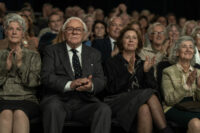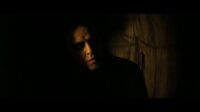When many were in elementary school using their noodles and churning imagination, the notion of becoming an animal sounded downright cool. Blame it on consecutive generations raised on the likes of Wild Kratts, “The Crocodile Hunter” Steve Irwin, and Jack Hanna, kids would get inspired and carry on wild ideas of becoming bigger, stronger, and faster than the boring, claw-less, fang-less, slow-climbing, and non-flying bipedal mammals we are. They don’t think about the truly freakish implications beyond the natural wonders of swimming like a dolphin or flying like an eagle. That’s where a film like The Animal Kingdom swerves fanciful childish fantasies and thrusts forward with startling actualities to consider if such possibilities actually began to happen.
The Animal Kingdom, the opening night film of the prestigious Un Certain Regard program of the 76th Cannes Film Festival last year, manifests a present-day landscape where an unexplained divergence of evolution has been causing citizens to gradually metamorphose into animal-human amalgamations. Set in the modernized nation of France, these occurrences over the last two years are being treated and investigated like a disease or contagion. This precariously established environment of mutations puts director Thomas Cailley’s film closer to the disturbing pages of H. G. Wells than some uncanny Marvel comic adventure.
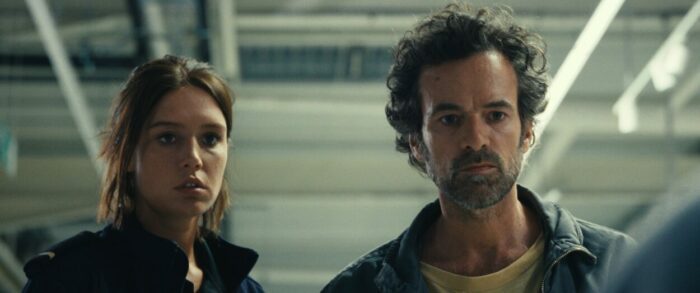
Due to the difficulty of the scientific and medical communities discerning this crisis, there is a lack of not only a cure, but a positive societal understanding, leading to prejudice, fear, and a dangerous situation of embattled confrontations. The threatened public has turned to police and military escalation for capture and containment. Meanwhile, the discriminatory majority has bestowed the slanderous label of “critters” to these unfortunate souls. Many folks have come to dismiss that these individuals are their neighbors, friends, or even their own family members.
One such brood caught in the middle of this calamity is the Marindaze family. The Animal Kingdom opens with the father François (Romain Duris of Our Struggles and The New Girlfriend) bringing his teenage son Émile (Paul Kircher of Winter Boy) to a special hospital to visit their afflicted wife and mother Lana. She is quickly becoming unresponsive to verbal communication and unrecognizable as a human. The authorities are going to move her and other care subjects to a safer facility away from the city.
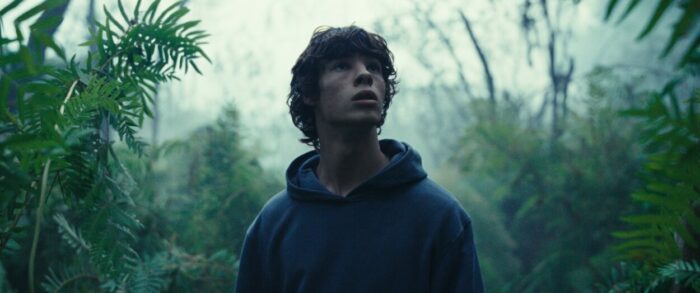
With their trusty dog Albert joining them, François takes a new kitchen job and secures a rental property far out of town for him and Émile to be closer to Lana. Not long after they arrive, the hospital transport carrying Lana is involved in a roadside accident where all of the– hate to say it– prisoners flee into the deciduous woods and swamps of the Nouvelle-Aquitaine region of western France. The escape has brought in the National Guard, including the benevolent Sgt. Julia Izquierdo (an overqualified Adèle Exarchopoulos of Blue is the Warmest Colour fame) who befriends François in his quest to find his missing wife.
The emigration of François and Émile to this rural area shrinks the settings and viewpoints of The Animal Kingdom. If this were Paris, the panic of the public health crisis would be suffocating. Instead, here in the forested glens and bogs, there is a potential for segregated harmony between the nearby townspeople and the animal hybrids who have taken to the trees. During a hiking encounter while searching for his mother with François, Emile meets and eventually befriends a winged man named Fix (Synonyms award nominee Tom Mercier). Instead of seeing an enemy, the son sees a kindred spirit and vice versa.
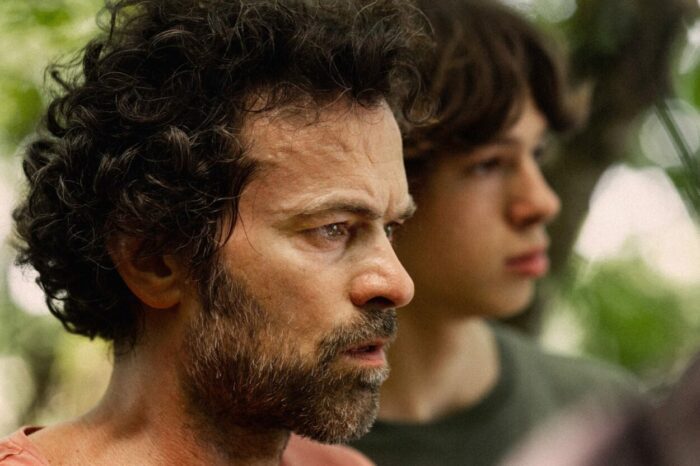
For the creative designs of these creatures, the Cesar Award-winning artistry of The Animal Kingdom jumps off screen. The transformations are one-half practical prosthetic makeup work supervised by Frédéric Lainé (The Nun II, Benedetta) and one-half the glaze of special effects developed by Eric Ducron (Big Bug). Making the most of its $15 million budget, The Animal Kingdom goes beyond jaw-dropping looks. The guttural animal sounds and ominous natural noises of the forest settings layered by the sound mixing team (Fabrice Osinski, Raphaël Sohier, Matthieu Fichet, and Niels Barletta) envelop the audience. Capturing all of this bizarre detail is excellent framing and outdoor location camera work from director of photography David Cailley (Great Minds).
The audacious premise of The Animal Kingdom, expanded from an original idea of Pauline Munier, begs for distinctive audience interpretation. What would you do if a family member was transforming in this same manner? What if you were the one changing? What would scare you? The human struggles remain at the nucleus of the film and is primarily centered on the father-son dynamic between François and Émile. They’ve lost the matriarch of their family and find themselves going through new and serious changes that break their bonding with strife.
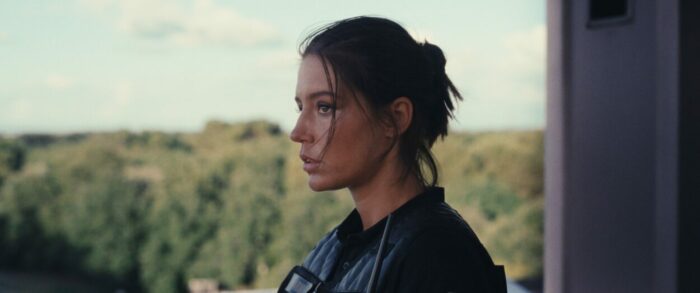
The escalating fear of these mutations takes the familial drama in The Animal Kingdom and multiplies it to a community level. The “what would you do” questions from the previous paragraph rise to higher tests of tolerance and courage. Is there a feral shift in behavior to be truly scared off or do these mutants deserve their own space and safe haven? Who will do something about it? Thomas Cailley’s film compels family members and public people alike to choose proverbial ally, advocate, and accomplice status towards the “critters,” which can echo the social commentaries of prejudice at-large today. Thought-provoking parallels, though limited, can be readily drawn all over the film’s narrative.
Overall, The Animal Kingdom has veritable ambition, yet its emphasis on alarm and intolerance only dares to answer the larger provocations and heavier subjects at hand. Duris and Kircher carry the film’s agony built of grief and maturity admirably. However, the overarching beacon opportunity of it all is low on cinematic wonder and adventure. Any savage behavior is light and only occasionally suspenseful. As daring as it looks and behaves, the envelope could have been pushed even further to stir up something undeniably impactful.


